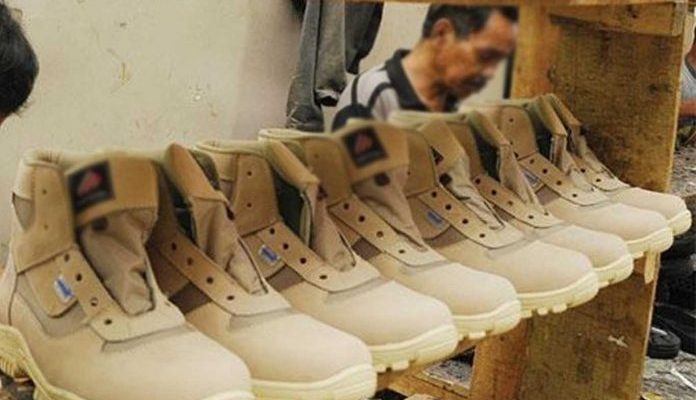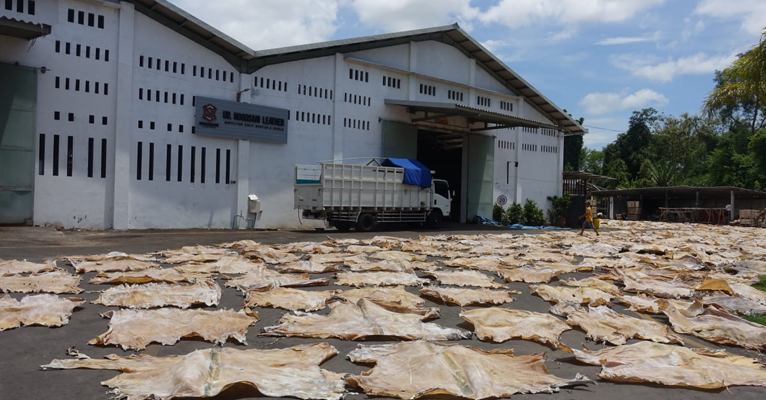Industri kulit sering kali dikaitkan dengan tantangan keberlanjutan, namun UD Nogosari Leather dari Kabupaten Lumajang…

Footwear SMEs Ready to Transform Towards Industry 4.0
The Head of the Indonesian Footwear Industry Development Center, Heru Budi Susanto said, based on the results of the BPIPI survey regarding the potential map of the footwear industry in 2018, the Small and Medium Industry (SMES) of footwear has recognized the "internet of things", although it is still limited. Usage data shows 33.5% for product marketing, 28.5% for raw material purchase transactions, and 26.5% for business development, the remaining 11.5% have not used.
If you look at the data, it shows that footwear SMEs are relatively ready to face industry 4.0 with several preparations, including coaching and assistance in the field for the implementation of industry 4.0 in the production line The need for a process of cultural adaptation and business-related mindset in the current disruptive era. The current task of the government through BPIPI is to prepare competent and culturally prepared industrial human resources and business-related mindset running a footwear business. Heru Budi said that at least five aspects need to be prepared in the application of the industrial revolution 4.0, namely aspects of management and organization, human and cultural aspects, product and service aspects, technological aspects, and aspects of manufacturing operations. "The Ministry of Industry with policies has an obligation to prepare these aspects so that national industries are more prepared to face changes to these five aspects," said Heru Budi, recently in Bandung.
The benefits of enacting the Industrial revolution 4.0 according to Heru Budi, from the Industry side as a reference to determine the company's position in relation to industry 4.0 in determining the company's future strategy to find out the challenges that will be faced related to the transformation to Industry 4.0, in addition to helping company management evaluate the effectiveness company operations as well as for benchmarking the company's position with similar companies. Meanwhile, from the government side, to find out the company's commitment and ability to implement Industry 4.0 as a basis for the government to determine targeted policies related to Industry 4.0 and to determine incentives for industry.
Incentives for technology investment that have the potential to drive technology innovation and adoption. Therefore, the Indonesian government will redesign its technology adoption incentive plan, such as subsidies, corporate tax breaks, and exemption from import tax for companies committed to implementing 4IR technology. In addition, Indonesia will launch a state investment fund as additional funding support for investment and innovation activities in advanced technology.
Heru Budi added, Making Indonesia 4.0 brings positive economic impacts and job opportunities. The implementation of Making Indonesia 4.0, if successful, is expected to encourage real GDP growth of around 1-2% per year, so that GDP growth per year will increase from the baseline between 5% to 7% in the 2018-2030 period, where the manufacturing industry will contribute as much as 21-26% of GDP in 2030. This GDP growth was driven by a significant increase in Indonesia's net exports, which are expected to reach 5-10% of the net export-to-GDP ratio in 2030. In addition to the increase in productivity, Making Indonesia 4.0 promises to create jobs between 7-19 million, in the manufacturing and non-manufacturing sectors, as a result of greater export demand. The commitment that is expected in the implementation of Making Indonesia 4.0 with tangible benefits, Indonesia can commit to implementing it.
http://bisnisbandung.com/2019/11/05/ikm-alas-kaki-siap-bertransformasi-menuju-industri-4-0/




This Post Has 0 Comments